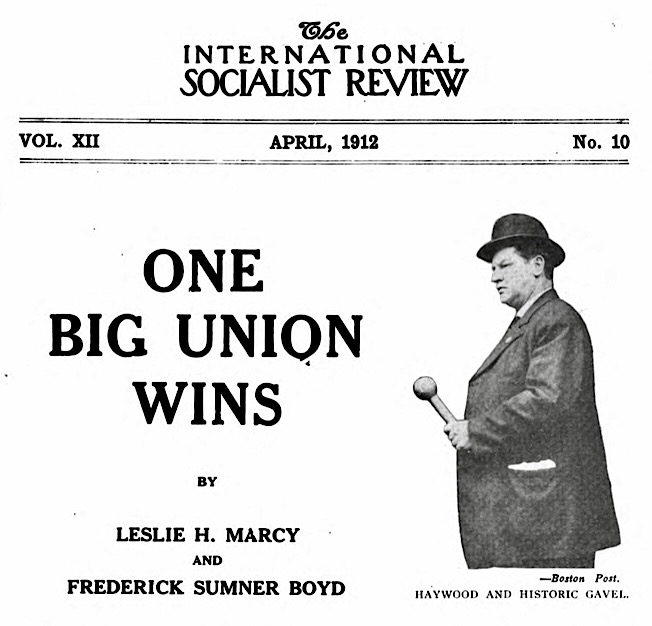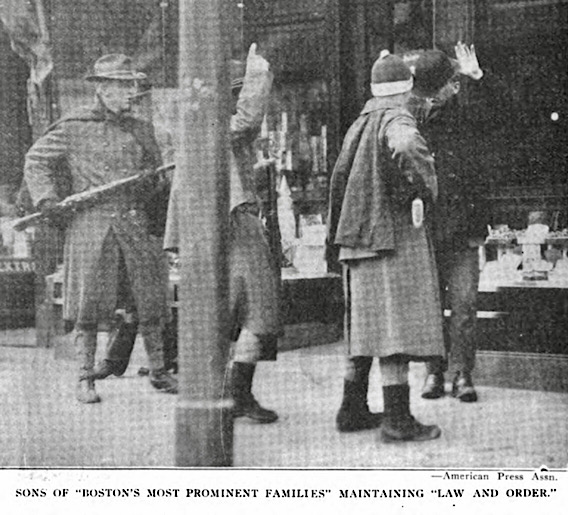 —————
—————
Hellraisers Journal – Wednesday April 3, 1912
Lawrence Textile Strikers Win Great Victory with I. W. W., Part I of IV
From the International Socialist Review of April 1912:
THE greatest victory in American labor history has been won by the Industrial Workers of the World in Lawrence, Mass., in a pitched battle of nine weeks’ duration against the most powerful cotton and woolen corporations in the world.
For fifty years the great textile corporations had reigned in New England practically unchallenged, save when ten years ago Tom Powers of Providence, R. I.. led a fierce battle against the American Woolen Company.
During the nine weeks of the fight in Lawrence every barbarity known to modern civilization had been perpetrated by police, military, courts and detectives, the willing tools of the bosses. Pregnant women were clubbed and their children delivered prematurely. Children were beaten in the streets and jails. Men were shot and bayonetted, the jail cells were filled, three year sentences were imposed for comparatively trivial offences, and machine guns were brought into the city.
And despite the abrogation without a shadow of legality of every constitutional right, including those of free speech and free assemblage, and despite the provocation offered by the presence of the bosses tools, twenty-two thousand strikers preserved, under the leadership of the Industrial Workers of the World, a self possession and a self-restraint that was little short of marvelous. Not one overt act was committed by the strikers. Not one desperate deed of an infuriated individual was proved against a striker.
For the first time in America’s labor history it has been demonstrated that a bitterly-fought battle between capitalists and workers can he conducted without the workers resorting to any form of violence. If any triumph is to be claimed for the I. W. W. this is one of the foremost of many.
The strike took its rise in hunger and was fought against hunger in the first place, and against excessive exploitation in the second. Sixty years ago, when Lawrence was little more than a village, and the mills were few and small, the daughters of New England farmers came from the farm to the mill to earn pin money. But as the years passed and the mills grew larger and more powerful there came into the city around the mills a class of people who depended entirely upon the mill for a living. They were first English, Irish and Scotch.
Later Germans and French Canadians began to enter and take their place in the mills. and for years these were the only nationalities to be found. Because the labor market was comparatively restricted and the mill owners were greedy for profits they sent lying emissaries through Europe, particularly to Italy, telling of the wealth of America. These men scattered literature broadcast, and showed pictures of the pleasant homes to be gained in the new land. One picture in particular showed a mill worker leaving the mill and on the way to a bank opposite.
Thus the Italian workers were lured to New England, and after them came in quick succession representatives of almost every nationality in Europe and Asia Minor, until today among others there are Syrians, Armenians, Russians, Portugese, Poles, Greeks, Franco-Belgians, Lithuanians, Letts [Latvians], Jews, Turks and Bohemians.


